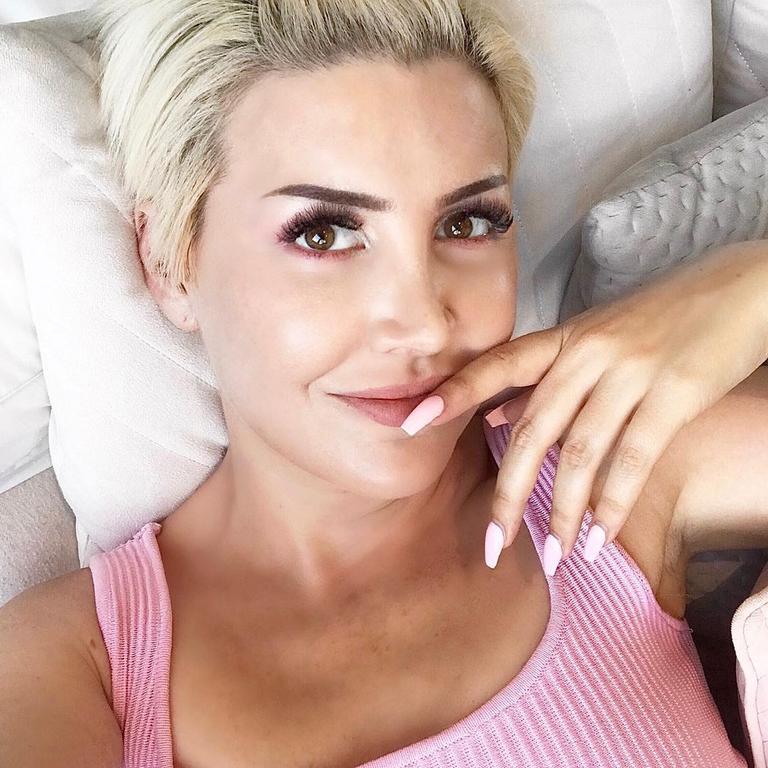Nadia Bokody: What happens to your body when you stop having sex
We’ve all had dry spells. But not having sex isn’t just detrimental to your relationship – it’s bad for your health too, explains Nadia Bokody.
During my late twenties, I was plagued by phantom vaginal pain.
After a visit to my gynaecologist failed to uncover answers, I complained to a girlfriend about the mystery tenderness between my legs.
“It’s blue walls,” she asserted.
“Blue what?” I shot back.
“Men get blue balls when they don’t have sex, and we get blue walls. If you want to feel better, just get laid,” she chuckled.
Unconvinced but intrigued, I put her hypothesis to the test. A few hours later, my marriage’s sex drought, and my pelvic pain, had come to an end.
As it turns out, blue walls isn’t just a comedic notion shared among sexually frustrated women; it’s science. The medical term for it is ‘vasoconstriction’ – which is the narrowing of blood vessels by small muscles in their walls.
RELATED: Woman’s X-rated trick to ‘best sex’

RELATED: Secret to turn a woman on every time
When we’re turned on, blood rushes to the tissues around our genitals, causing them to swell. If we don’t relieve that swelling, things can start to feel … uncomfortable. Men know this as blue balls, but for women – because it’s less recognised – that heavy, tender feeling that accompanies extended periods of sexual inactivity can be mistaken for menstrual cramps.
And sore genitals aren’t the only physical side effect of a dry spell. Sexlessness can have a profound impact on our mental cognition, immune system and libido.
The more sex we have – whether that’s sex had on our own or with a partner – the greater our desire typically will be. In the same way muscles are built by consistently lifting weights at the gym, a strong libido is often the consequence of regular sex.
It’s no coincidence people in sex-starved relationships tend to report desiring sex less. Sex is a reward system – we need to experience the benefits of it in order to want more of it. Forgoing sex for weeks or months can prompt a tapering off of a person’s libido, making sexless relationships an especially tricky issue to tackle.
And we know from research it’s often women who report desiring sex less among monogamous heterosexual couples.
This is why women in general – but especially women in long-term relationships – can benefit from investing in a vibrator and practising regular masturbation. Vibrators help to promote blood-flow to the genitals, which in turn improves lubrication and pleasure, as well as increasing the likelihood of orgasm, providing the foundation for a robust libido.
RELATED: Truth about lie women tell during sex

RELATED: Why women can’t stop watching porn
Going without sex for long periods can have especially dire consequences for women entering menopause, too. Sexual inactivity, combined with a drop in oestrogen, leads the vaginal walls to thin over time, resulting in painful sex and drying out of vaginal tissues.
If that’s not a convincing enough reason to stay sexually active (and I feel I have to add a reminder here that masturbation counts as sexual activity), sexlessness can also be detrimental to our mental health.
While it’s not uncommon for stress to cause a loss of interest in sex, having less sex can also raise stress hormones, making us feel less relaxed and content. In fact, a study conducted by researchers at Oregon State University, found couples who have sex before work are more focused and experience better job satisfaction in the 24 hours after nookie.
People who get off regularly are also less likely to catch a cold or flu, according to research that found couples who had sex at least once a week had higher levels of salivary immunoglobulin A (IgA) than sexless couples.
Though perhaps nowhere else are the impacts of sexlessness more pronounced than in our romantic relationships.
While having sex certainly won’t guarantee your relationship’s success or safeguard it from an affair, research does overwhelmingly indicate couples in sex-starved relationships (that is, couples who have sex less than 10 times a year, according to most experts) have significantly lower levels of relationship satisfaction.
And here’s the real kicker: sexlessness is usually ignored (and it’s important to note, most couples are affected by it at some point). Unfortunately, because we live in a sex-negative culture that shrouds discussion of sex in shame and mystery, it’s common for the issue to be swept the issue under the bed.
While sex shouldn’t be the most important part of a relationship, it also shouldn’t be disregarded. Our bodies give us signals for a very specific reason; they know when it’s time to eat, sleep, defecate and – yes – get off.
Which is why we don’t neglect our hunger cues or deny the urge to visit the bathroom. So why do we dismiss sexlessness when it affects our relationships?
Though admittedly a spontaneous romp did cure my blue walls in my late twenties, it didn’t fill the chasm of unspoken words between my husband and I. The sex tapered off again, we both grew bitter, and eventually parted ways.
These days I make a point to regularly communicate with my partner about sex, especially when we’re not having it. Sometimes the discussion is awkward – it might even result in an argument – but we do it anyway, because the reality is, talking about your dry spells is far less excruciating than another month of stifled pleasure and blue balls.
Follow Nadia Bokody on Instagram and YouTube for more sex, relationship and mental health tips.




